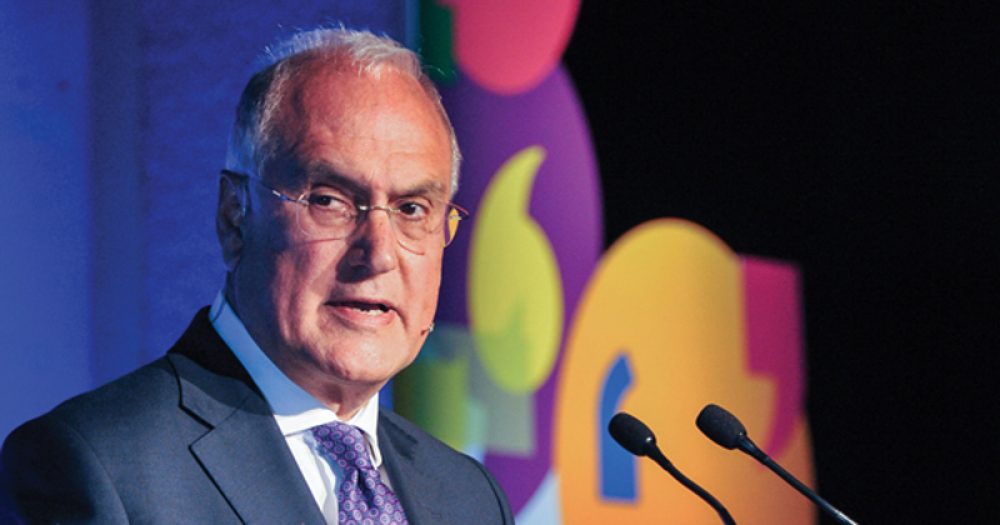Ofsted’s chief inspector Sir Michael Wilshaw has this morning warned that England is a “nation divided” over the quality of its secondary school.
Today, Sir Michael launched the watchdog’s fourth annual review of schools. He pointed to a contrast in the performance between primary and secondary schools, stating that the gap between the two has not narrowed, despite secondary schools improving slightly.
The report shows that underperforming secondary schools are concentrated in the north and Midlands; Ofsted said 410,000 children attend a secondary school that “isn’t good enough” and listed 16 local authorities, 13 of which are in the north and Midlands, where less than 60 per cent of children attend good or outstanding secondary schools and have lower than average attainment and progress at GCSE.
The proportion of good and outstanding secondary schools has increased overall this year (from 71 per cent in 2014 to 74 per cent), Sir Michael said this is down to a greater improvement in the south (79 per cent now good or outstanding) whereas in the north and Midlands just 68 per centof secondary schools are good or better.
At primary level, 85 per cent of schools are now rated good or outstanding, up from 82 per cent last year.
However, Mike Parker, director of the Schools North East group, told Schools Week yesterday that it could come down to just five schools in the north, to change outcomes.
He said: “Let’s put this in context – the north east lags national averages by 2 per cent at requires improvement and 1 per cent at inadequate in secondaries.
“We only have 170 secondaries in the region so an upwards shift of just 5 schools would bring parity.”
Launching the report, Sir Michael said: “We are witnessing an educational division of the country after age 11, with secondary schools performing well overall in the South but struggling to improve in the North and Midlands.
“The facts are stark. Compared to secondary school children in the South, those in the North and Midlands on average make less progress in English and maths, perform worse at GCSE and attain fewer top grades at A-level.
“If left unaddressed the consequences will be profound. Our society, our future prosperity and development rely on the better education of our children. As things stand, too many secondary schools in the North and Midlands are failing to equip young people with the skills and knowledge they and the country need.
“I fear that unless we resolve these divisions our country’s educational progress will be seriously impeded and we will not be able to compete as well with our international competitors.”
He added: “We have to ask whether this level of failure is being effectively challenged by local politicians and school leaders, and whether the relatively successful big cities in the North and Midlands are playing their part in supporting their neighbouring towns.
“If Liverpool, Manchester, Leeds, Sheffield, and Newcastle are to be engine rooms of a Northern powerhouse, one of their priorities must be working with the towns on their borders to raise attainment and close skills gaps across a wider area.”
In response, education secretary Nicky Morgan said: “The landscape of English education has been transformed over the past five years through raising both standards and expectations. Thanks to the hard work of teachers across the country and our ambitious programme of reforms, there are now 1.4 million more pupils being taught in good or outstanding schools compared to 2010.
“This progress should not be ignored, but we believe more needs to be done to deliver educational excellence everywhere and tackle pockets of underperformance, so that we can extend opportunity to every single child.”







How can these education “experts” have such divergent views on a set of figures?
On financial matters we have the “Office for Budget Responsibility” to give us an independent view of whether the financial figures stack up.
We need a similar independent organisation to give a verdict on Educational performance.
None of the data thrown about by Sir Michael Wilshaw contains any reference to statistical significance. In fact I don’t believe the man has any idea of what statistical significance means. And if that was not bad enough, Nicky Morgan has shown herself to be hopeless at Maths.
Both Wilshaw and Morgan are more interested in their own self-image than anything else, and we should not be making decisions based on their bluster. It is disappointing that we do not have better calibre people in such important positions.
Harsh words, hopefully motivated by concerns for young people and their families rather than making political or personal capital (which it reads like) (ALWAYS PUT STAKEHOLDERS especially vulnerable young people before OUR needs).
Difficult to spot in this post HOW young people will benefit from it … ?Isn’t that why we all go to work?
Wish the person making this post had better calibre ..